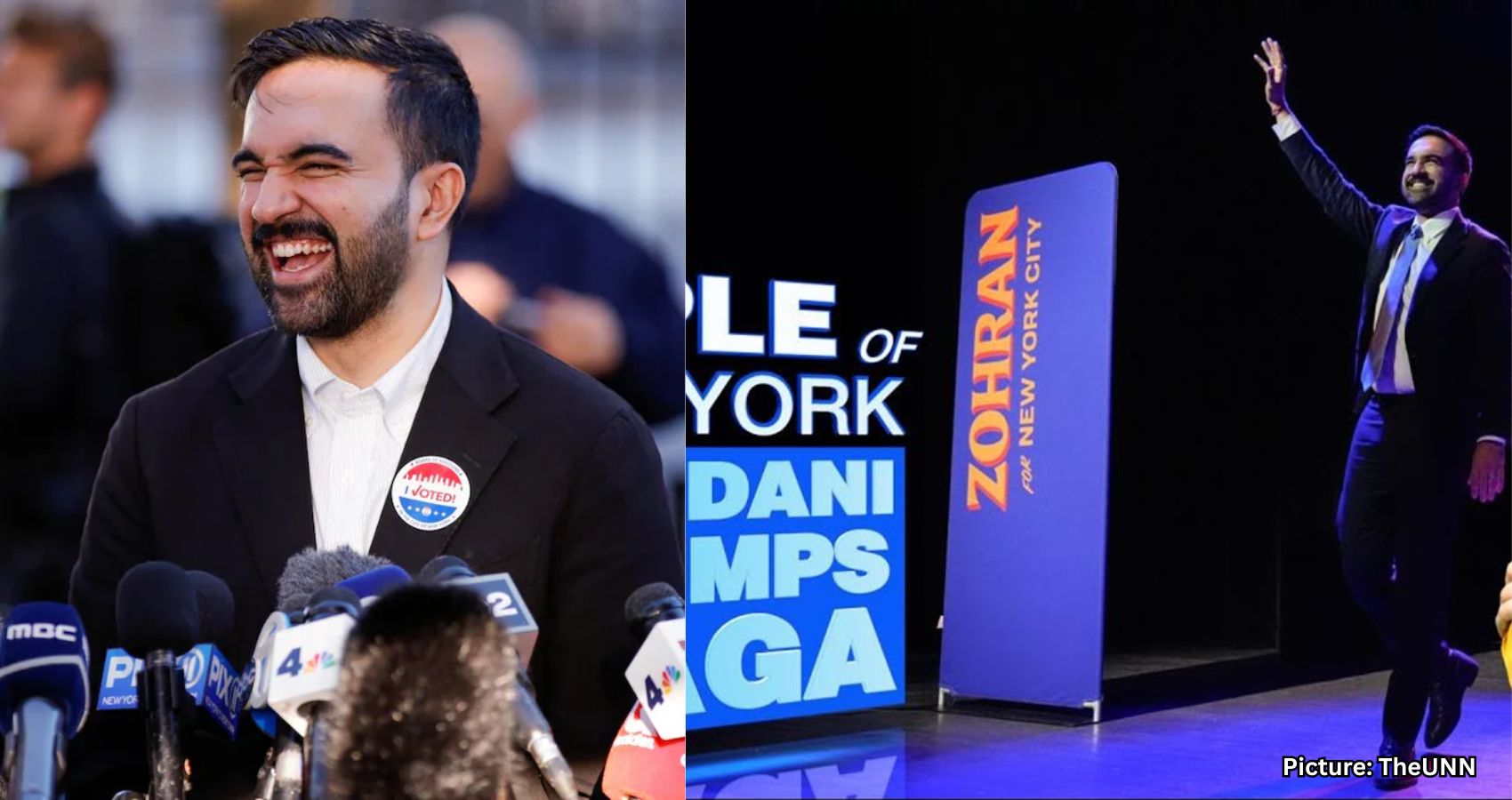Queens Assemblymember Zohran Mamdani is making history as he campaigns to become New York City’s first South Asian, Indian American, and Muslim mayor, challenging political norms and energizing voters.
In the race for New York City mayor, Queens Assemblymember Zohran Mamdani has emerged as a formidable candidate, challenging traditional political norms and energizing a disillusioned electorate. His candidacy has become a significant focal point for many, with the potential outcome seen as a litmus test for the Democratic Party.
Mamdani, a 34-year-old Indian American, is the son of renowned academic Mahmood Mamdani and Oscar-nominated filmmaker Mira Nair. His candidacy is noteworthy not only for its historical implications but also for the way it reflects the evolving dynamics within the Democratic Party.
Political analysts have noted that while New York’s mayoral race may not serve as a national bellwether, Mamdani’s campaign is viewed through a lens that could influence perceptions of the Democratic Party. This perspective underscores the significance of his candidacy, marking a potential shift in the party’s direction.
Support for Mamdani appears to be growing, with some supporters coining the term “Mamdani Democrats” to describe a new wave of unapologetically progressive voters. Early voting trends indicate that he has a substantial lead as election day approaches on November 4. According to the final Emerson College poll, Mamdani holds a 25-point lead over his closest competitor, former New York Governor Andrew Cuomo, with 50% of the vote. He also leads his Republican rival, Curtis Sliwa, by 29%.
Spencer Kimball, executive director of Emerson College Polling, noted that Mamdani’s support has increased by seven percentage points since last month, while Cuomo’s support has declined. The poll revealed that Mamdani has built a diverse coalition, particularly among Black voters, where his support surged from 50% to 71%. Among younger voters, 69% support him, compared to 37% of those over 50.
If these polling trends hold, Mamdani would make history as New York’s first Indian American, South Asian, and Muslim mayor. However, the implications of his potential victory extend beyond the city. Observers suggest that a win for Mamdani could influence the Democratic Party’s national strategy, particularly as it seeks to appeal to moderate independent voters disillusioned with the Republican Party.
The Republican Party, especially its MAGA base, is closely watching the election. A victory for Mamdani could be leveraged to portray the Democratic Party as overly progressive, which could impact their strategy for the upcoming 2026 mid-term elections. This dynamic highlights the importance of Mamdani’s candidacy in the broader political landscape.
While Mamdani’s left-of-center positions may pose challenges for the Democratic Party nationally, his campaign has resonated with many voters who are concerned about the affordability of living in New York. His proposals, which include freezing rent increases on rent-stabilized housing and making public transportation free, may face scrutiny regarding their feasibility on a national scale.
Despite the potential hurdles, Mamdani’s rise in the political arena has been described as a blockbuster moment for the season. His campaign reflects a growing movement within the Democratic Party, one that seeks to address the pressing issues facing urban voters.
As the election approaches, the outcome remains uncertain, but Mamdani’s candidacy has undoubtedly sparked conversations about the future direction of the Democratic Party and its ability to connect with a diverse electorate.
Source: Original article

